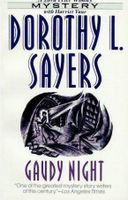Undead and Unwed, by MaryJanice Davidson
>> Friday, April 30, 2004
Vampire books had never previously worked for me, but the reviews and comments were so wonderful for Undead and Unwed, by MaryJanice Davidson, that I bought it anyway.
Betsy Taylor is having a helluva week. She's been laid off, her stepmother boycotted her birthday party (again), her cat isn't speaking to her, she can count on one hand how often she's gotten laid in the last 18 months, and she's dead.Ok, this was funny, funny, funny stuff. A B+.
As if this wasn't bad enough, she can't seem to stay dead ... she rises each night in search of unholy sustenance and designer footwear. Worse, the other vampires are convinced she's been Foretold ... in other words, she's the new vampire queen. More concerned with her looks than vamp politics, Betsy just wants to keep her head down and adjust to her new liquid diet. Trouble is, the only vampires who want her more than the good guys are the bad guys. And when the good guys are ruthless, and the bad guys are unhinged, and they ALL want to have sex with her to cement their power base, it's tough for a modern girl to keep her shapely butt out of trouble ... and out of bed.
I don't think one could categorize this novel.... vampire chick-lit? Is there such a genre? Whatever it was, it worked.
Betsy was a very engaging narrator. Actually, the whole writing style made me think of being in a comedy club and listening to a hilarious stand-up comedian. A witty, smart-ass comedian, that was Betsy all right. She actually won me over in spite of myself. I shouldn't have enjoyed her, I even rolled my eyes a couple of time, but I couldn't help myself. I don't know if it was her willingness to laugh at herself, or the way she took the extremely weird stuff that was happening to her in stride (and laughed at it), but she was amazing.
I was actually surprised by how sexy I found this book. I mean, yes, the author is well known for steamy writing, so on that account, I should have been expecting it, but the thing is, I'd always been grossed out by bloodsucking in vampire books. Carpathians, Sookie Stackhouse, Anita Blake, whatever, my reaction was just "yuck!" Here, it was sexy. Go figure.
And speaking of sex... this wasn't a romance, I know, but what can I say? I wish we'd had a bit more development of that aspect. The final love scene was really amazing. Davidson did something that worked extremely well there, and I just wished I were more invested in that couple.
Still, I had so much fun, even without a real romance, that I pretty much didn't care. Read more...
 I confess it: I am, first and foremost, a romance reader, so even in books outside the genre, it's the romantic threads that capture my imagination the most. As such, I've been looking forward to reading
I confess it: I am, first and foremost, a romance reader, so even in books outside the genre, it's the romantic threads that capture my imagination the most. As such, I've been looking forward to reading 








